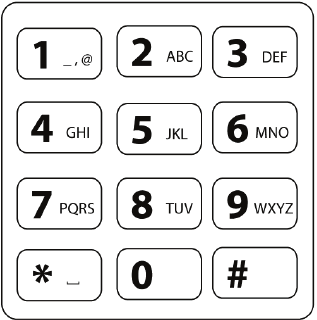HEADLINE
This week both tasks had one thing in common i.e. pairing two or more list. In the past, I have taken the help from CPAN module Algorithm::Combinatorics for such tasks. However this time, I wanted to get my hand dirty and came up with the following:
# generate all possible combinations
my @combinations = ('');
foreach my $members (@data) {
@combinations = map {
my $member = $_;
map $member.$_, @$members
} @combinations;
}
I used the same piece of work in both tasks.
Let me share my solutions to the Perl Weekly Challenge - 067.
TASK #1 › Number Combinations
Submitted by Mohammad S Anwar
You are given two integers $m and $n. Write a script print all possible combinations of $n numbers from the list 1 2 3 … $m.
Every combination should be sorted i.e. [2,3] is valid combination but [3,2] is not.
After getting all possible combinations, using the above code, it was time to filter the list as per the requirements. The following code does the job for me. Here I had to get help from CPAN module List::Util supplied uniq() to filer unique entries.
# filter combinations
my %filter;
foreach my $member (@combinations) {
my @uniq = uniq split //, $member;
next unless (@uniq == $n);
$filter{ sprintf("[%s]", join ', ', sort @uniq) } = 1;
}
Please find below the complete sub comb() which handles the core of the task Number Combinations.
sub comb {
my ($m, $n) = @_;
die "ERROR: Missing 'm'.\n"
unless defined $m;
die "ERROR: Missing 'n'.\n"
unless defined $n;
die "ERROR: Invalid m=$m (m>0).\n"
unless ($m > 0);
die "ERROR: Invalid n=$n (n>0).\n"
unless ($n > 0);
die "ERROR: Invalid n=$n (n<=m).\n"
unless ($n <= $m);
# prepare data set
my @data = ();
push @data, [1..$m] foreach (1..$n);
# generate all possible combinations
my @combinations = ('');
foreach my $members (@data) {
@combinations = map {
my $member = $_;
map $member.$_, @$members
} @combinations;
}
# filter combinations
my %filter;
foreach my $member (@combinations) {
my @uniq = uniq split //, $member;
next unless (@uniq == $n);
$filter{ sprintf("[%s]", join ', ', sort @uniq) } = 1;
}
# return sorted result
return sprintf("[ %s ]", join ', ', (sort keys %filter));
}
Getting the above Perl sub comb() translated into Raku was the most fun part.
As I am a big fan of method-chaining of Raku, I never miss any opportunities. For generating combinations in Raku, I don’t need external module, as Raku has everything built-in I need it.
Raku Rocks !!!.
If you noticed, I didn’t have to filter the result of combinations. Less work for me as compared to my Perl solution. Chaining with map() and join() made it look like kids job.
It turned out to be a one-liner in Raku without being difficult to understand.
sub number-combinations(Int $m where { $m > 0 },
Int $n where { $n > 0 }) {
$n > $m and say "ERROR: Invalid n=$n (n <= m)" and exit;
return sprintf("[ %s ]",
(1..$m)
.combinations($n)
.map({ '['~$_.join(',')~']' })
.join(', '));
}
Using the above sub comb(), the end result becomes one-liner.
use strict;
use warnings;
use List::Util qw(uniq);
my $m = $ARGV[0];
my $n = $ARGV[1];
print join "\n", comb($m, $n), '';
Even Raku is not behind either. I must admit, it looks more attractive.
use v6.d;
sub MAIN(Int :$m where { $m > 0 } = 5, Int :$n where { $n > 0 } = 2) {
number-combinations($m, $n).say;
}
Below is the standard unit test dealing with usual test case.
use Test::More;
use List::Util qw(uniq);
is( comb(5, 2),
'[ [1, 2], [1, 3], [1, 4], [1, 5], [2, 3], [2, 4], [2, 5], [3, 4], [3, 5], [4, 5] ]',
'testing m=5; n=2' );
is( comb(5, 3),
'[ [1, 2, 3], [1, 2, 4], [1, 2, 5], [1, 3, 4], [1, 3, 5], [1, 4, 5], [2, 3, 4], [2, 3, 5], [2, 4, 5], [3, 4, 5] ]',
'testing m=5; n=3' );
is( comb(5, 4),
'[ [1, 2, 3, 4], [1, 2, 3, 5], [1, 2, 4, 5], [1, 3, 4, 5], [2, 3, 4, 5] ]',
'testing m=5; n=4' );
is( comb(5, 5),
'[ [1, 2, 3, 4, 5] ]',
'testing m=5; n=5' );
done_testing;
Similarly, Raku unit test followed the same path.
use Test;
is number-combinations(5, 2),
'[ [1, 2], [1, 3], [1, 4], [1, 5], [2, 3], [2, 4], [2, 5], [3, 4], [3, 5], [4, 5] ]',
'testing m=5, n=2';
is number-combinations(5, 3),
'[ [1, 2, 3], [1, 2, 4], [1, 2, 5], [1, 3, 4], [1, 3, 5], [1, 4, 5], [2, 3, 4], [2, 3, 5], [2, 4, 5], [3, 4, 5] ]',
'testing m=5, n=3';
is number-combinations(5, 4),
'[ [1, 2, 3, 4], [1, 2, 3, 5], [1, 2, 4, 5], [1, 3, 4, 5], [2, 3, 4, 5] ]',
'testing m=5, n=4';
is number-combinations(5, 5),
'[ [1, 2, 3, 4, 5] ]',
'testing m=5, n=5';
done-testing;
TASK #2 › Letter Phone
Submitted by Mohammad S Anwar
You are given a digit string $S. Write a script to print all possible letter combinations that the given digit string could represent.

As mentioned above, I borrowed the code to find the combinations as before. Luckily, I didn’t have to do anything else to the list.
sub phone_letters {
my ($digits) = @_;
die "ERROR: Missing digits.\n"
unless defined $digits;
die "ERROR: Invalid digits [$digits].\n"
unless ($digits =~ /^[0-9\*\#]+$/);
# letter phone
my %letter_of = (
'1' => '_,@',
'2' => 'abc',
'3' => 'def',
'4' => 'ghi',
'5' => 'jlk',
'6' => 'mno',
'7' => 'pqrs',
'8' => 'tuv',
'9' => 'wxyz',
'0' => '0',
'#' => '#',
'*' => chr(9251),
);
# prepare data set
my @data = ();
foreach my $digit (split //,$digits) {
push @data, [ split //, $letter_of{$digit} ];
}
# generate all possible combinations
my @combinations = ('');
foreach my $members (@data) {
@combinations = map {
my $member = $_;
map $member.$_, @$members
} @combinations;
}
return @combinations;
}
With the power of Raku, I used the map() and reduction meta-operator [], to get the job done.
sub phone-letters(Str $digits where { $digits ~~ /^ <[0..9\*\#]>+ $/ }) {
# letter phone
my %letter-of = (
'1' => '_,@',
'2' => 'abc',
'3' => 'def',
'4' => 'ghi',
'5' => 'jlk',
'6' => 'mno',
'7' => 'pqrs',
'8' => 'tuv',
'9' => 'wxyz',
'0' => '0',
'#' => '#',
'*' => chr(9251),
);
# prepare data set
my @data = $digits.comb.map({ [ %letter-of{$_}.comb ] });
# generate all possible combinations
return map {qq{'$_'}}, ([X~] @data);
}
To handle the unicode character, I had to rely on the following line to help printing the utf8 encoding character.
binmode STDOUT, 'encoding(UTF-8)';
After that it just becomes one liner as below:
use strict;
use warnings;
binmode STDOUT, 'encoding(UTF-8)';
print join "\n", phone_letters($ARGV[0]), '';
With Raku, no need to deal with unicode character separately.
Raku Rocks once again !!!*
use v6.d;
sub MAIN(Str :$digits where { $digits ~~ /^ <[0..9\*\#]>+ $/ } = '35') {
say sprintf("[ %s ]", phone-letters($digits).join(", "));
}
Finally unit test to make it complete solution.
use Test::More;
use Test::Deep;
is_deeply( [ phone_letters('35') ],
[ 'dj', 'dl', 'dk', 'ej', 'el', 'ek', 'fj', 'fl', 'fk' ],
'testing digits 35' );
is_deeply( [ phone_letters('10') ],
[ '_0', ',0', '@0' ],
'testing digits 10' );
is_deeply( [ phone_letters('2#') ],
[ 'a#', 'b#', 'c#' ],
'testing digits 2#' );
done_testing;
And Raku unit test goes alone the line.
use Test;
is sprintf("[ %s ]", phone-letters('35').join(", ")),
"[ 'dj', 'dl', 'dk', 'ej', 'el', 'ek', 'fj', 'fl', 'fk' ]",
'testing "35"';
is sprintf("[ %s ]", phone-letters('10').join(", ")),
"[ '_0', ',0', '@0' ]",
'testing "10"';
is sprintf("[ %s ]", phone-letters('2#').join(", ")),
"[ 'a#', 'b#', 'c#' ]",
'testing "2#"';
done-testing;
That’s it for this week. Speak to you soon.
